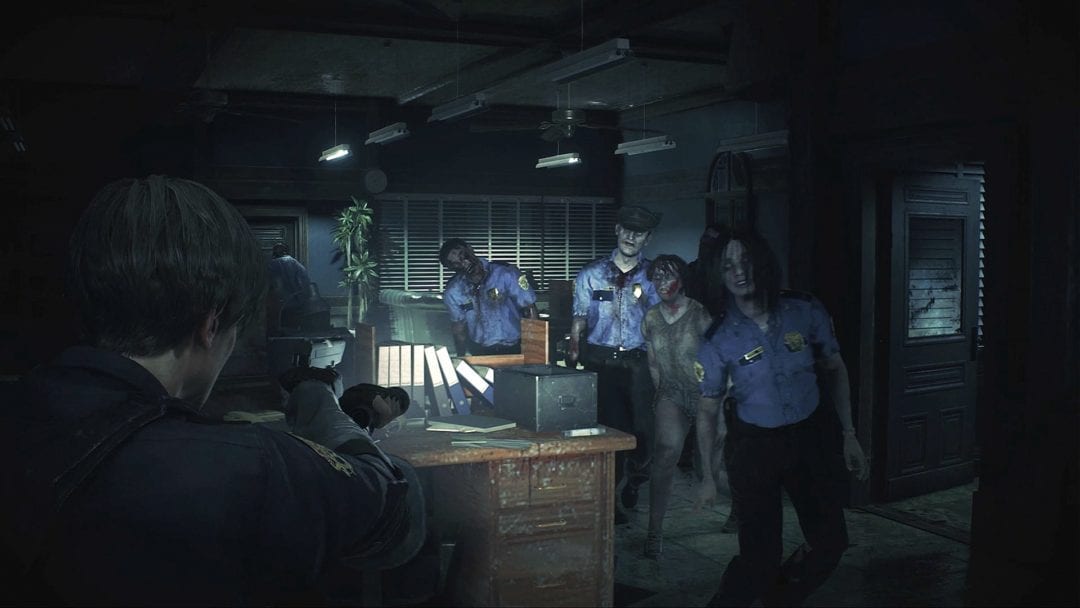Last week, I discussed laws relating to quarantine and isolation and considered how public health officials could use those laws to protect the United States from a zombie outbreak. This week, I will pick up where I left off last time and consider some of the interesting issues that could arise if we fail to prevent the zombie disease from spreading.
One of the biggest legal questions implicated by a zombie attack relates to the legal status of zombies and the extent to which zombies would be protected by normal laws. Before beginning the inquiry itself, it is worth reiterating a point I made a few weeks ago. Since we have never experienced an actual zombie outbreak, these scenarios are literally unprecedented. As a result, there is no “right” answer. Instead, the best we can hope to do is draw parallels to circumstances we have seen before and consider whether those parallels are close enough to provide a “best guess” as to what would or should happen.
The question at hand is whether it would be legally permissible to kill zombies in order to reduce the spread of the zombie epidemic. To be clear, the question is not whether it would be legally permissible to kill a zombie in self defense. If you can kill non-zombified people in self-defense, then you would certainly be able to kill zombies. The question is whether it would or should be legal for someone to kill zombies as a preventative measure.
Ironically, this fun, fanciful question is actually a sibling of much more controversial questions regarding abortion and the rights of fetuses. That’s because the question of whether it is permissible to kill a zombie turns on the question of whether zombies have a right to life or, alternatively, whether zombies are alive. We can think of this question in two parts: Do zombies have a right to life as zombies, and do we need to consider any residual rights belonging to the pre-zombified person?
The first question is fairly straightforward and has a pretty easy answer. In most zombie stories, zombies are depicted as animalistic, mindless monsters without any of the qualities we normally attribute to people. They do not think, they do not feel, and they lack what many would call a “soul.” It seems fairly safe and not controversial to conclude that these kinds of zombies are not alive, and thus do not have any rights.
The second question is much more difficult than the first. In most stories, we are lead to believe that one’s transformation into a zombie is permanent and that once someone becomes a zombie, that person is gone forever. If that is the case, then the only rights one would have would be the rights (if any) belonging to the zombie form. In most stories, that form would not be entitled to any rights. However, if the transformation is not permanent, or if we are not sure whether it is permanent, then we are dealing with a diseased person who could one day be cured. In that situation, the question should not be framed as whether the zombie has rights, but should instead relate to how we treat people who are physically or mentally ill. That’s a question we already know the answer to. We should do our best to keep them safe, prevent them from hurting themselves or others, and facilitate their recovery.
In reality, the question would probably be much more complicated since there would likely be some ambiguity regarding the permanent nature of zombification. Even today, the well-recognized concept of “brain death” is controversial in many communities and sometimes leads to conflicts (and legal disputes) over whether someone should be disconnected from life support. As a result, it is easy to see that any discussion relating to the permanent nature of a zombie transformation would be incredibly controversial, and would not lend itself to easy answers. The judgment calls that would normally be associated with questions of “brain death” would also be complicated by the zombie threat. The greater the threat, the easier it is to characterize any zombie killing as reasonable self-defense.
Ultimately, I am left without a solid sense of how the issue of zombie rights would be decided in court. What I am confident about is that the outcome would be incredibly controversial. I imagine Zombie Roe v. Wade — a landmark Supreme Court decision that divides the country between those who believe that the right to life extends to the undead, and those who believe that transforming into a zombie extinguishes one’s rights.
The fact that my imagined zombie debate perfectly mirrors the abortion debate is a function of the fact that both issues implicate the same questions: What does it mean to be alive? Why do people have rights? How do we balance the rights of a not-entirely-human (a fetus or zombie) against fully formed people (the mother or people who might be threatened by the zombie)? How do we go about resolving these questions?
A few weeks ago, I claimed that “fanciful, imaginative stories can have a substantial and meaningful impact on how we view and perceive the law and its underlying foundations.” I can’t imagine a better example of that principle than the close connection between the zombie rights debate and the abortion debate. The fact that Zombie Roe v. Wade does not yet exist means that we can consider the issues and value questions raised by zombie rights without necessarily tripping over the controversial third-rail that often follows abortion discussions. By thinking through the issues in the context of science fiction zombies, we can abstract away the controversy while engaging in thoughtful and relevant discussions.
And, of course, when the zombies eventually arrive — as we know they will — we won’t have to waste any time deciding which side to picket.





